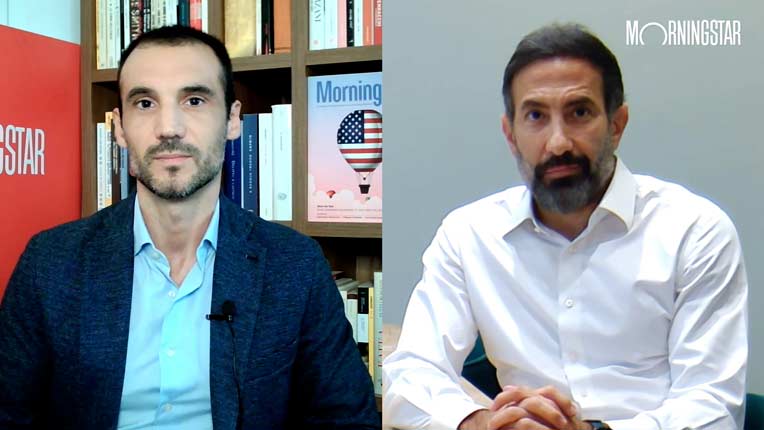Valerio Baselli: Hello and welcome to Morningstar. Thematic strategies have been expanded rapidly in recent years, with exchange-traded funds leading the way. Investing in a thematic ETF is an easy way to gain exposure to a trend you believe in but be aware that they could be volatile and such trends are very different one from another. To take stock of the thematic landscape, today I'm joined by Aanand Venkatramanan, head of ETFs, EMEA, at Legal & General Investment Management.
So, Aanand, after having experienced a booming period in the post-covid recovery, thematic strategies have overall struggled over the last two years, of course some themes more than others. How do you judge today the health of the thematic landscape and what do you expect from thematic investors in the second part of the year?
Aanand Venkatramanan: Hi, Valerio. Thanks for having me here. So, I would say to answer your question straight away, I would say in the last 12 to 18 months, I would bucket thematic strategies into three groups. One that has sort of outperformed or mimicked the performance of I would say S&P 500 ex-Mag Seven and then so on. The other one is, I would say, themes that have kind of tracked the broad market cap benchmarks more or less in line. And the third would be the category where some of the themes which underperformed the broad market cap benchmarks.
On the first category, clearly AI and emerging trends in cybersecurity clearly sit there where the outperformance over, let's say, MSCI or S&P 500 equal weighted is quite discernible. Clearly, with the background that over the last 12 to 18 months, most of the performance, I would say, in typical market cap benchmarks have come from the Magnificent Seven names. So, if you bear that in mind and if you were to compare any theme with the S&P 500 ex-Mag Seven, I would say that would be a good benchmark to use. And particularly the fact that themes also have many small and mid-cap stocks. And in the second category is where you've seen themes, let's say, like clean water and so on that is cross sectors and industries, e-commerce, logistics and so on, which have different risk and correlation characteristics versus a pure tech-oriented theme. And then finally, in the third category is where you've seen more renewable stocks and I would say stocks that are related to the clean energy theme, which have kind of suffered some amount of underperformance last year as cost of capital increased and valuations came down because of thinner margins.
So, I would say these are predominantly the three buckets that I would put them into. But if you were to go back further and look at it from, I would say, the beginning of the covid lockdown period and so on, the performance characteristics do look a bit different because the bounce back that happened in 2020-2021 was quite strong and, in a sense, some of themes that have remained there have corrected themselves from that point.
Baselli: And I mean, as you said, unsurprisingly among the hottest themes lately have been artificial intelligence or even blockchain, for example. On the other hand – and this could be a surprise somehow – clean energy and solar stocks in particular have been suffering. What do you expect from the larger theme of the energy transition and what is the best way for investors to be exposed to it, in your opinion?
Venkatramanan: Brilliant. I mean, when you look at it – so, when it comes to renewables, I'm a firm believer in economics. When it comes to renewables, today, solar and wind are the cheapest form of power in most parts of the planet across many countries. So, what does that mean? So, if any country or a company wants to install new power generation capacity, solar would be your cheapest and quickest to build and commission. Whereas if you kind of compare that with nuclear or thermal, even the construction phase is so prolonged, it could take anywhere between five to 10 years to build some of these plants in certain places. Then you're talking about delayed commissioning times and escalated costs. So, by default, many countries and many companies are switching to renewables, one, because of the whole net-zero climate transition goals, but the other is purely driven by economics. And I feel that is the greatest driver in my view, where the economics have stacked up in favour of solar and wind nicely. But yes, in the recent past, we have seen some corrections. And there are a few reasons for that.
I mean, the cost of capital right now with higher interest rates has clearly gone higher. So, if anyone – if a power generator or an independent power producer wants to build their plants, clearly the borrowing rates are higher, and that has led to some slowdown in deployment of capital. And on the other hand, when it comes to existing power producers, who have locked in certain prices in there, what you call as power purchase agreements, for a period of let's say five years or so on, you then had a scenario last year where their receivables were fixed, but their interest costs have gone up. And clearly, because of that, there were margin compressions and you saw valuations going down. But now, as we enter into a scenario where there could be some level of relief when it comes to interest rates, then as the cost of capital goes down, some of these announced projects will start taking shape and start to be constructed and commissioned, and that will be a demand driver for some of these.
I would say the long-term drivers haven't disappeared. We are still facing a massive challenge in front of us in terms of climate change, and we need to address that. And solar, wind will form a very major role in helping us transition away from conventional sources of power to, I would say, more renewable sources of power.
Baselli: Very interesting. Finally, if you had to choose three themes to invest in today, what would they be and why?
Venkatramanan: I mean, clearly the obvious one, I would say, that comes to my mind straight away is anything AI related. And clearly, that's a tectonic shift happening at the moment, right, in terms of our adoption of AI from, I would say, more high-performance applications all the way to our smartphones. And you'll see that AI is going to start touching each of these places across all sectors, right from individuals, corporations to governments, even more over the next decade or so. And an allied field that I feel will benefit from that tailwind and the driver is going to be emerging trends in cybersecurity. Again, that's another theme where we've seen very interesting performance characteristics, particularly over the last 12 to 18 months. As AI grows, we need to kind of defend ourselves better when it comes to cybersecurity. So, the emerging sectors and segments within the cybersecurity theme is starting to show those signs.
And on the third front, I would say it's a mix of both battery technology and renewables. Even with battery technology, there's been a lot of talk of slowdown in electric vehicles sales. But when you actually look a bit deeper, the market has slowed down from very high double-digit growths to I would say still lower end of double-digit growths. So, it's not that it's gone negative. The market is still growing at actually on a relatively faster pace. But it's just that the rate of that what was kind of anticipated to be exponentially fast has kind of come down to more moderate, I would say, now a sustainable fast growth rates. So, I would say still very positive on those trends against the reasons that I just outlined and discussed. So, I would say it will be these three – so AI, emerging trends in cybersecurity and a mix of, I would say, battery technology and clean energy themes.
Baselli: Thank you so much, Aanand. For Morningstar, I'm Valerio Baselli. Thanks for watching.





























